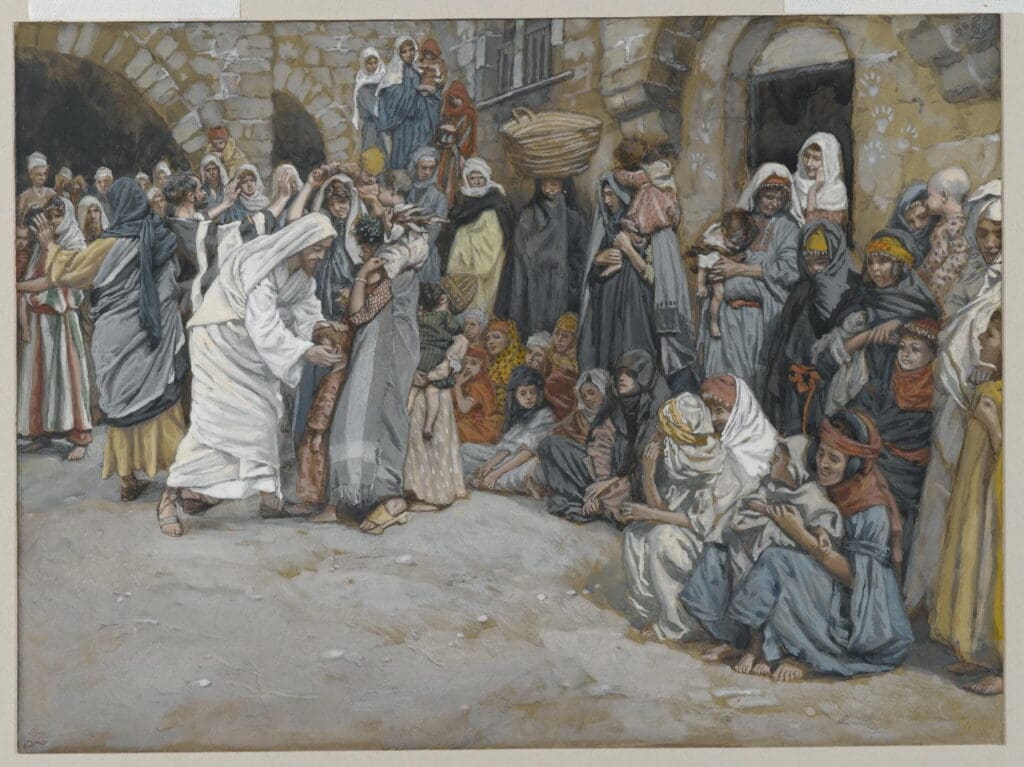President Trump recently announced measures to expand access to and reduce costs associated with in vitro fertilization (IVF). This is being billed as a pro-family and pro-life effort to help “American families have more babies.” While the intention and goal are noble, IVF, in fact, undermines human dignity, marriage, and family life for a variety of reasons.
But first, a word to those conceived through IVF, those struggling with infertility and, by extension, those wrestling with this aspect of the Church’s teaching, which can seem counterintuitive, confusing, and even harsh.
- For anyone conceived through IVF, know that you are a gift, not just to your parents but to us all. Regardless of how someone was conceived, every human person is made in the image and likeness of God and therefore is loved by God and shares in the same inviolable dignity as each one of us.
- For those who struggle with infertility, I walk with you in your sufferings. There is a deep yearning within the human heart to love and to be loved. Spouses desire to come together in marital intimacy and bring new human life into the world. When that desire is unfulfilled, it can cause disappointment, stress, shame, envy, anger, and desperation.
- Like so many other sufferings, infertility is part of the mystery of Original Sin and the wounded, fallen world in which we live. Yet God calls us to bear these crosses with grace and dignity.
We need not carry our crosses alone, however. Jesus meets us in our sufferings. He walks with us, desires to make us whole, and hopes we see the good He can bring out of suffering. As the Sisters of Life so beautifully state: “Jesus is intimately familiar with the barren wilderness and yearns to meet us there until we can rest refreshed in the Promised Land with Him.”
The Church supports technologies and medical interventions, such as restorative reproductive medicine, that help married couples address the root causes of infertility and naturally achieve a pregnancy through sexual union. These interventions are often very successful. Given the number of people with reproductive-health issues, these efforts deserve a greater commitment of our scientific and medical resources.
Infertility cannot always be resolved successfully, either by restorative measures or IVF. But restorative options provide great hope and opportunity to couples, while respecting the dignity of human life, marriage, family life, and Church teachings.
To return to President Trump’s recent executive action, there are several key reasons why this action is ethically compromised and morally misguided.
As our U.S. Conference of Catholic Bishops recognized in response, “The IVF industry treats human beings like products and freezes or kills millions of children who are selected for transfer to a womb or do not survive.”
It’s important to understand that in nearly every IVF cycle, many more embryos are created in the lab than it’s possible or desirable to implant in the womb of the intended mother. Those not implanted are either destroyed, frozen indefinitely, or abandoned, which often results in those tiny human beings becoming victims of medical experimentation.
Often with IVF, multiple embryonic human beings are implanted in the womb and survive, but are then “eliminated” because they can threaten the mother’s life and health. In other words, these babies’ lives are terminated through “selective reduction” abortions.

None of this is pro-life, nor is it pro-family. It’s dismissive of human dignity and the real value of individual human lives, one of the clearest examples of the “throwaway culture” Pope Francis warned us against.
At a fundamental theological level, IVF undermines the marital act as the natural means for achieving a pregnancy. Rather than begetting new life through an act of love between a husband and wife in accord with God’s design for life-giving love, IVF relies on medical professionals and other technicians to manufacture new lives – some to be kept, some to be thrown away – through the fusion of sperm and eggs in a Petri dish.
As John Haas, an ethicist with the National Catholic Bioethics Center, has remarked:
[I]n IVF, children are engendered through a technical process, subjected to “quality control,” and eliminated if found “defective.” In their very coming into being, these children are thoroughly subjected to the arbitrary choices bringing them into being.
At times in the IVF process, the sperm or egg used are from a “donor” – a person who is paid to provide genetic material and then walks away forever. This raises deep concerns for the inherent rights of children to be brought into existence through the loving embrace of their biological mother and father.
Another moral dilemma generated by IVF is what to do with the millions of babies in their embryonic stage who are frozen in liquid nitrogen and then “banked” in some laboratory warehouse. Are they to be thrown away? Preserved until ethical technologies or interventions can bring about their gestation and birth? Experimented on?
Who will regulate the sale of embryos?
These practical conundrums – which occur within an almost completely unregulated IVF industry – shed further light on the inhumane and immoral practice that is IVF, and demonstrate why this path is fraught with moral dilemmas.
Ryan Anderson, president of the Ethics and Public Policy Center, notes that President Trump’s moves are “the least bad we could have hoped for.” There’s no mandate on employers, government subsidies for IVF, or infringement on religious liberty or conscience rights, as was initially feared. There are also provisions for “comprehensive and holistic restorative medicine,” which can help advance more ethical options.
Conversations about the dignity of human life, marriage, family, and IVF can be difficult. But God has called us to witness to the goodness, truth, and beauty of the human person and human relationships – the Gospel of Life and the Culture of Love that He desires for our country.
So, in the words of Jesus: “Be not afraid!” Have the courage to be a witness and evangelist for the Gospel of Life in its fullness.











